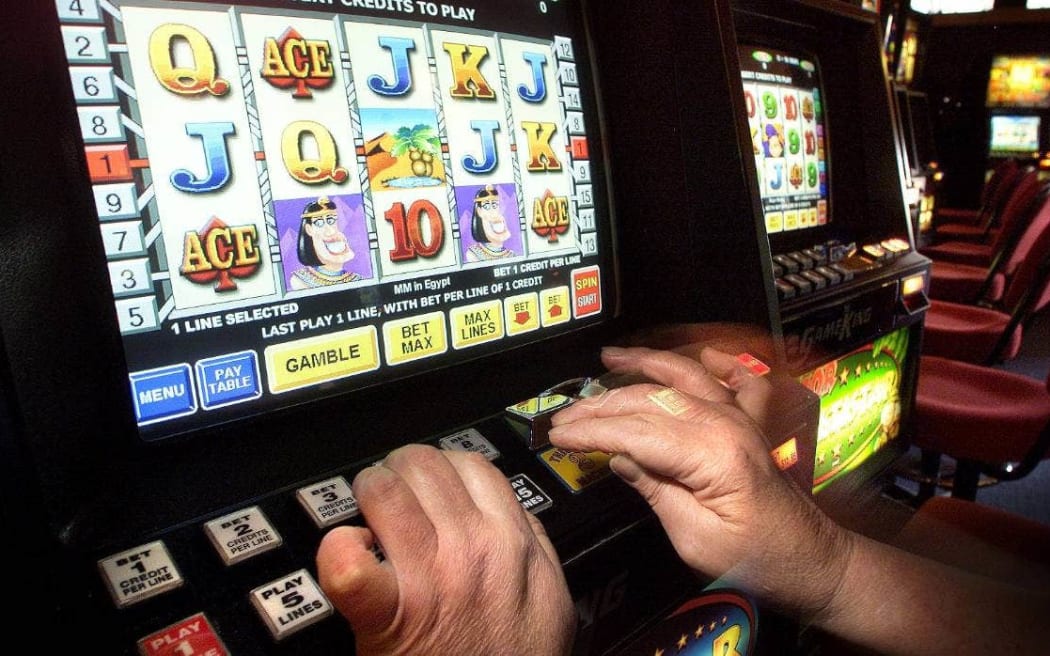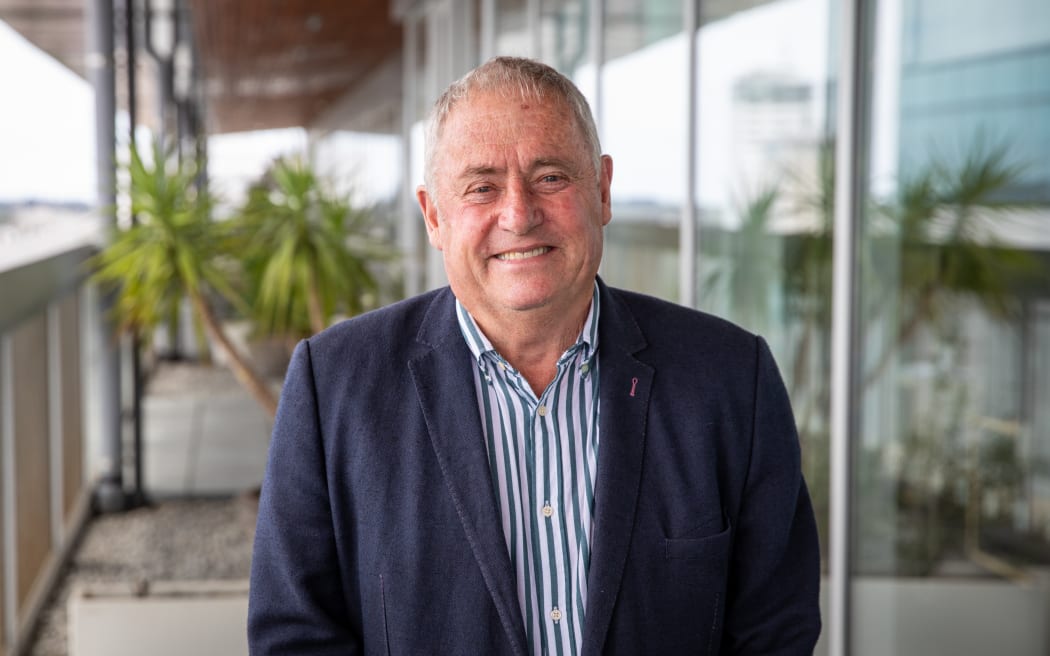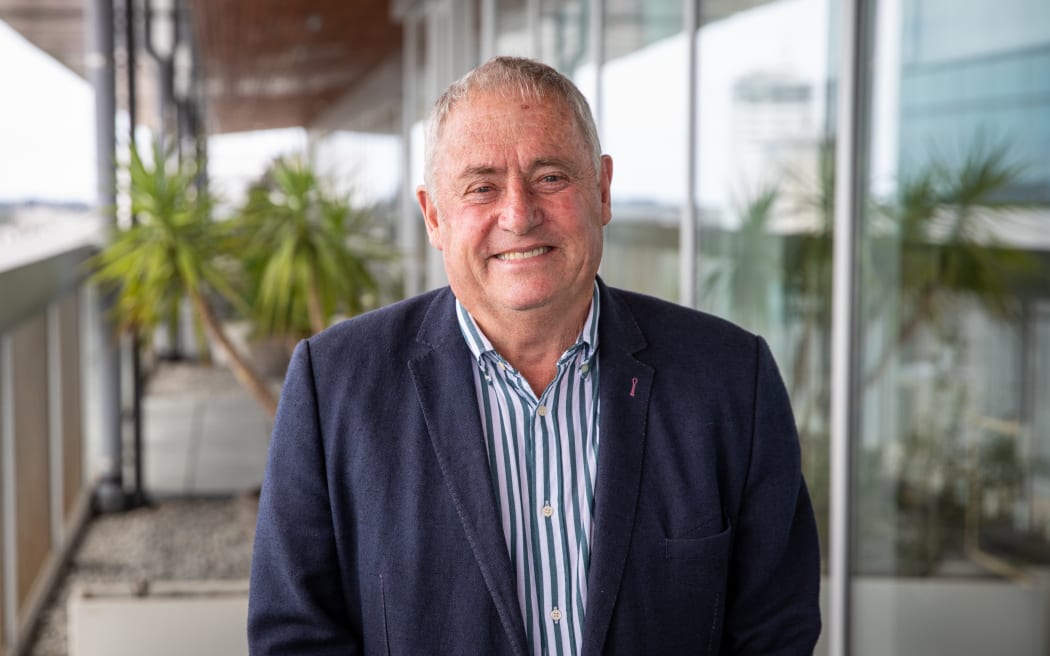
Photo: BRUCE MERCER/STUFF
Christchurch City Council will call on central government to do more to address the harm from problem gambling, but any decisions on its own gambling policy have been punted to later this year.
The council was on Wednesday meant to vote on its gambling and TAB venues policy following a review by staff. However, following a large number of deputations the council decided to let the report lie and get further advice from staff before the end of the year.
Council staff recommended retaining the existing policy, which had been in place since 2004, and contained a sinking lid policy on pokie machines by not allowing the establishment of new venues and not allowing venues to relocate.
In a letter to be sent to Internal Affairs Minister Brooke van Velden, Christchurch Mayor Phil Mauger said the council’s policy review had identified concerns about the rise in online gambling, particularly overseas-based operators who were not regulated in New Zealand.
“We understand there is work underway at the Department of Internal Affairs to investigate a regulatory framework for online gambling and note your recently announced proposal to regulate online casinos in order to minimise harm, support tax collection, and provide consumer protections to New Zealanders,” Mauger said.
“The council urges central government to be more ambitious in their approach to minimising gambling harm. We would appreciate the opportunity to work with central government agencies to explore policy options to better address a problem that significantly impacts those who can least afford it.”
The letter also noted the council’s sinking lid policy and, despite that, the city’s continued high rate of problem gambling.
It called for the government to provide more tools for councils to tackle the issue.
“The council is concerned that not enough is being done to address harm associated with electronic gaming machines, and encourages the Department of Internal Affairs to investigate ways to better mitigate the risk of harm for our most vulnerable communities,” Mauger said.
“We think this should include reconsideration of jackpot settings and prioritisation of host responsibility enforcement. Despite a moratorium on new gaming venues and machines, class 4 gambling losses have remained steady for many years, even though machine and venue numbers have decreased.
“This is very concerning to the council, and we urge central government to investigate more effective tools to better address problem gambling.
“While the council’s policy stops the establishment of any additional venues in areas at greater risk of gambling harm, it cannot meaningfully address the continued presence and concentration of existing venues in such areas. The council would welcome any opportunity to work with central government to explore options to better address the concentration of class 4 gaming venues in high deprivation communities.
“The council notes there is limited research available on the effectiveness of territorial authority gambling policies on harm minimisation. We think further research is worthwhile, because of the significantly greater risk associated with class 4 gaming machines and wish to make a meaningful contribution toward minimising gambling related harm through our class 4 venue policy.”

Phil Mauger
Photo: RNZ / Nate McKinnon
Christchurch had a higher number of pokie machines per capita than any other main centre in Aotearoa.
The review found $93.4 million was lost to the city’s pokie machines last year.
Views from the public were mixed, with the Problem Gambling Foundation and Te Whatu Ora calling on the Christchurch City Council to maintain its existing policy, while those from the Gaming Machine Association, the Community Trust and within the hospitality sector called for liberalisation.
Jarrod True, of the Gaming Machine Association, called on the council to put the policy out for public consultation and include an option for venues to relocate out of high-deprivation areas.
“If we prohibit relocation that doesn’t result in fewer machines, it just simply entrenches the current venues in undesirable locations and unsafe [areas],” he said.
Central Ward Councillor Jake McLellan raised doubts about that, saying it was a “relatively egregious argument put forward that if we allow venues to relocate their gambling machines, they’re likely to move to Fendalton and sell craft beer”.
Community Trust trustee Lesley Murdoch said amateur clubs relied on pokie machine money to survive.
Dr Charles Egwuba of Problem Gambling Foundation Services said the council should maintain the current policy.
“The evidence shows that a sinking lid policy is the one of the best policies available to take a public health approach to reduce gambling losses and harm,” he said. “Not allowing for relocations strengthens a sinking lid approach by making it harder for venues to move around the community, limiting access to harmful products.”
Pokies were the most harmful form of gambling in New Zealand and were highly addictive, Egwuba said.
The foundation also supported reforming gambling law to make it fit for purpose to deal with online gambling.
Te Whatu Ora community and public health policy advisor Hebe Gibson said Te Whatu Ora supported maintaining the sinking lid policy, but also wished the council would investigate strengthening it, including the possibility of banning club mergers.
“Pokies cause harm and they are the most harmful form of gambling in Aotearoa New Zealand. In Christchurch, around half of all clients seeking problem gambling services reported pokies were their primary mode of gambling,” she said.
“Class 4 venues are often located in areas of socioeconomic deprivation and this means the people living in those areas are inevitably exposed to gambling. There is also evidence that class 4 gambling increases socioeconomic disadvantage by transferring wealth from more deprived communities to less deprived communities, and this is because class four grants are less likely to return to the communities in which they were raised.”
Hospitality New Zealand Canterbury Branch Committee member Genaea Calvert said the council should change from a sinking lid to a capped number policy.
“The sinking lid policy… may have unintended consequences due to the stricter limitations and general ideological stance rather than an evidence-based approach. Natural attrition in venues and machines will significantly reduce the funding available to community groups.
“Instead of the sinking lid approach, we propose implementing a pro rata system. The system would allocate a specific number of gaming machines based on a percentage of the 18-plus population.”
